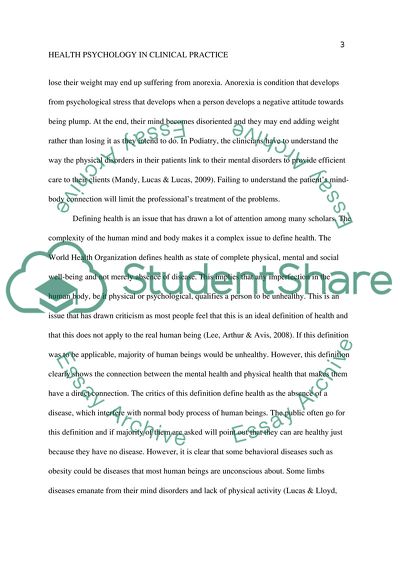Cite this document
(Health Psychology in Clinical Practice Essay Example | Topics and Well Written Essays - 1500 words, n.d.)
Health Psychology in Clinical Practice Essay Example | Topics and Well Written Essays - 1500 words. https://studentshare.org/psychology/1828440-using-examples-explain-why-knowledge-of-health-psychology-is-important-in-clinical-practice
Health Psychology in Clinical Practice Essay Example | Topics and Well Written Essays - 1500 words. https://studentshare.org/psychology/1828440-using-examples-explain-why-knowledge-of-health-psychology-is-important-in-clinical-practice
(Health Psychology in Clinical Practice Essay Example | Topics and Well Written Essays - 1500 Words)
Health Psychology in Clinical Practice Essay Example | Topics and Well Written Essays - 1500 Words. https://studentshare.org/psychology/1828440-using-examples-explain-why-knowledge-of-health-psychology-is-important-in-clinical-practice.
Health Psychology in Clinical Practice Essay Example | Topics and Well Written Essays - 1500 Words. https://studentshare.org/psychology/1828440-using-examples-explain-why-knowledge-of-health-psychology-is-important-in-clinical-practice.
“Health Psychology in Clinical Practice Essay Example | Topics and Well Written Essays - 1500 Words”. https://studentshare.org/psychology/1828440-using-examples-explain-why-knowledge-of-health-psychology-is-important-in-clinical-practice.


